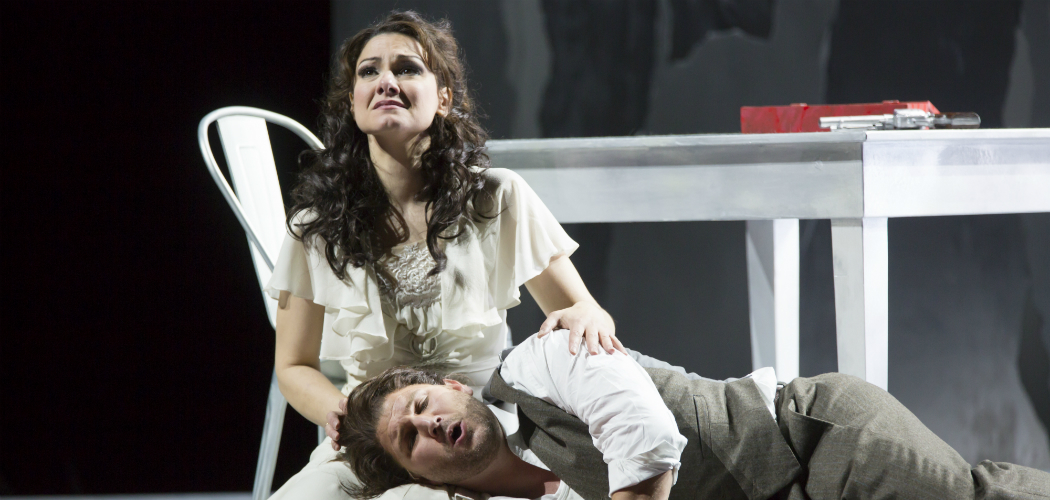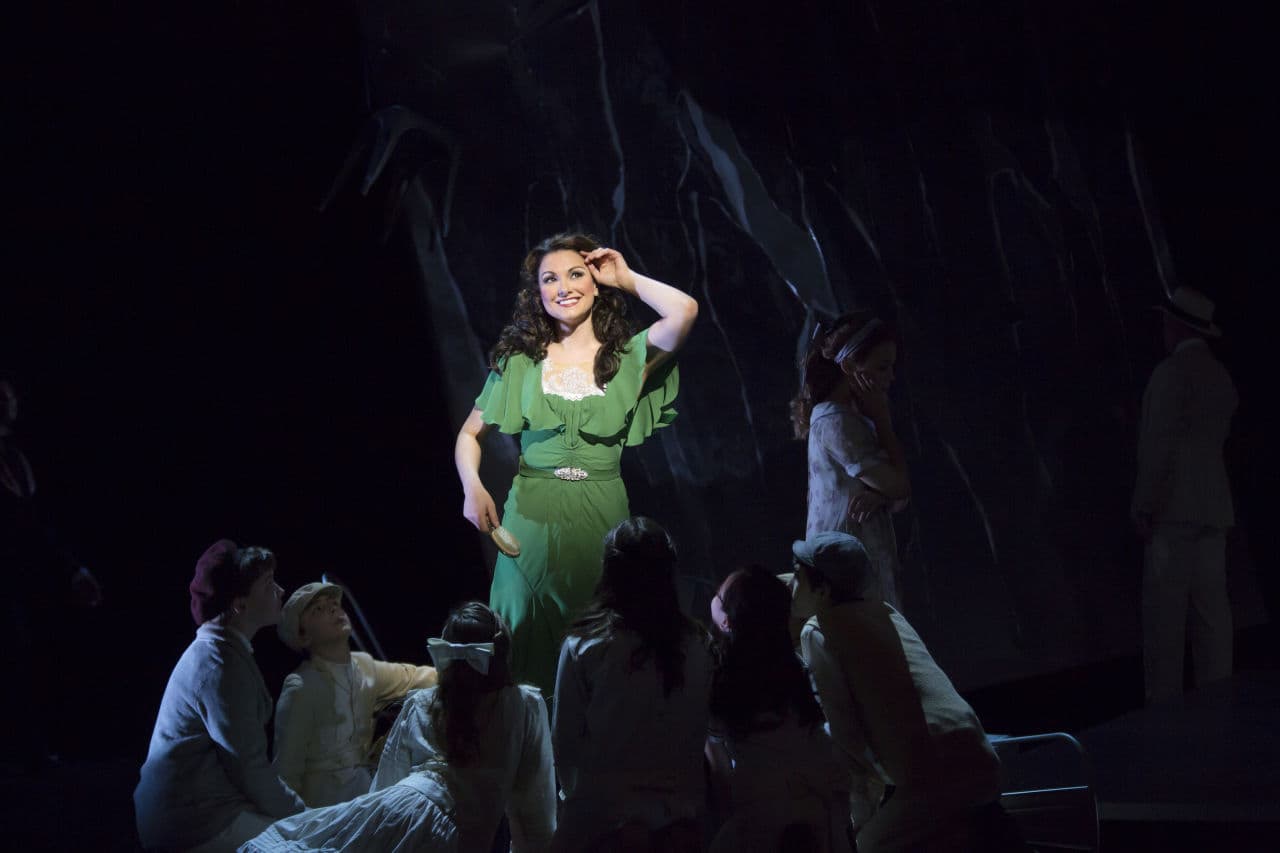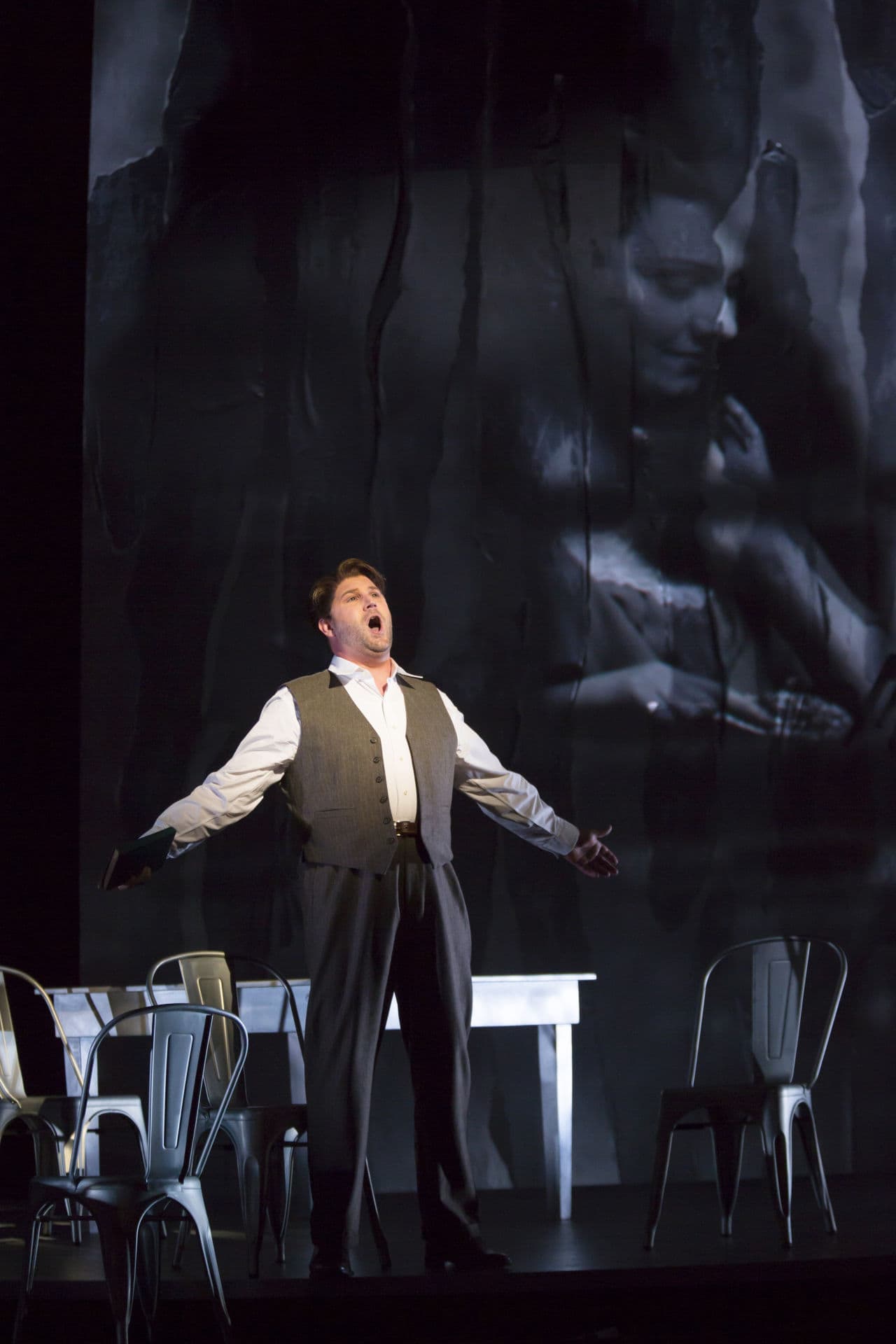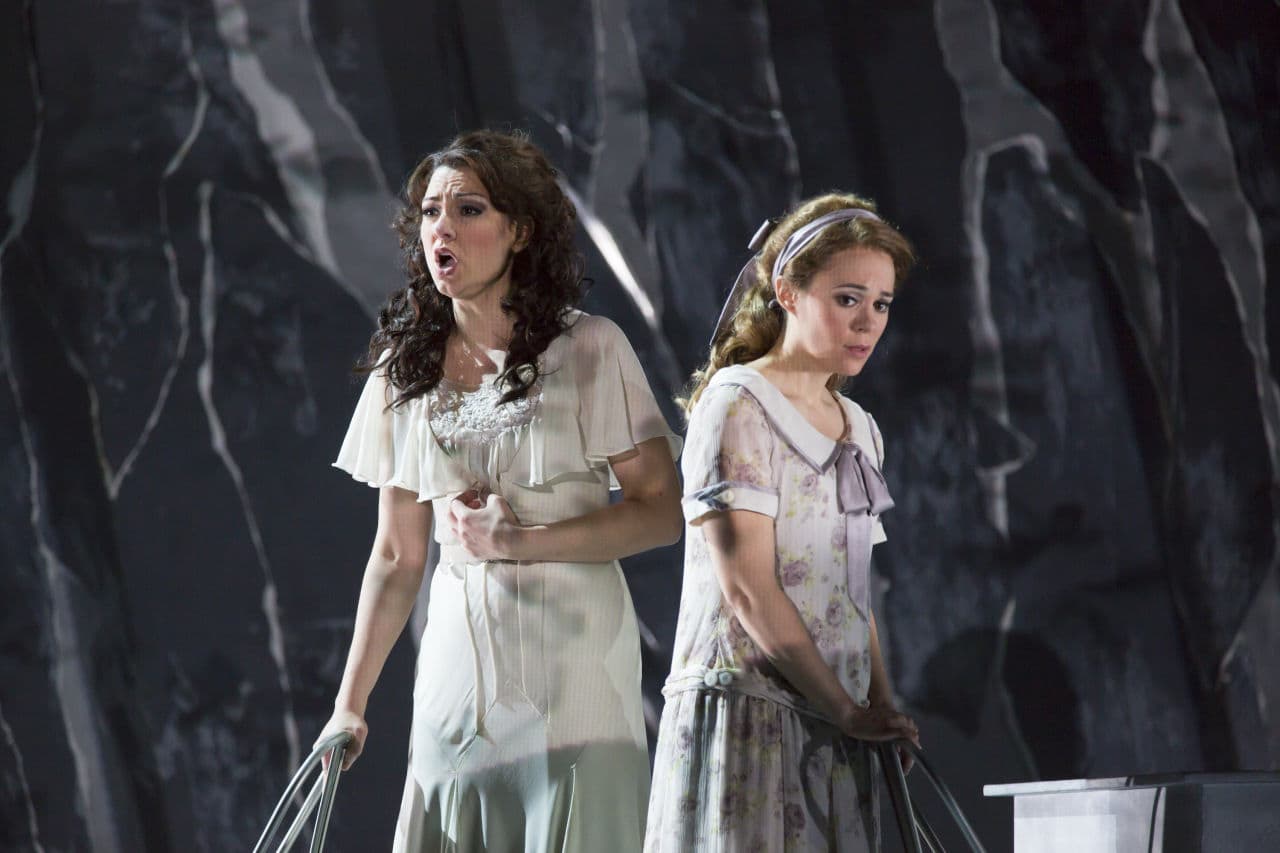Advertisement
BLO's 'Werther' Full Of Captivating Talent And — Chairs?

What was up with all those chairs?
We’ll get to that. The good news was the Boston Lyric Opera’s staging of Jules Massenet’s “Werther,” which opened Friday evening at the Shubert Theatre, featuring its incredible score, brilliant playing in the pit and solid cast of singers interpreting the roles.
The bad news was that this production did its best to distract from those excellent qualities. Tenor Alex Richardson sang the title role — the love-sick, hand-wringing Werther — and mezzo Sandra Piques Eddy portrayed Charlotte, his hopeless infatuation. Both voices were beautifully suited to the roles, Richardson gaining power and confidence as the evening progressed, and Eddy, a lyric instrument with surprising power, thoroughly captivating musically and dramatically.

The story, richly told in epistolary form by Goethe, is of course a linchpin of German Romanticism. Werther meets Charlotte, and they fall instantly in love. But Charlotte, the devoted head of household to a gaggle of brothers and sisters whose mother has died, is betrothed to Albert. She goes through with the wedding, but neither she nor Werther ever forget their passion.
Director Crystal Manich and set designer John Conklin moved Massenet’s setting from Germany to an undisclosed time in France. You could tell by the berets, and the smoking. The single set featured three large video screens, two behind and one above, which changed with the scene. Designed by Greg Emetaz, sometimes the screens showed Jean Renoir-like soft images with dreamy sequences of Charlotte brushing her hair, or she and Werther dancing in imaginary happiness. Other times the screens served as exotically textured backgrounds, with colors and patterns dripping down. The palette was a striking steel gray — props, walls, stage.
On the stage, one table and chairs. Lots of them. Chairs plastered to the video screens as well, high above the action. The chairs never left the stage. Most of them were tossed askew, props for Charlotte’s expansive charge of children (ably acted and sung by Voices Boston, directed by Steven Lipsitt). Occasionally, characters sat in the chairs, but mostly they were just there.

The libretto drastically foreshortens the original, focusing on the relationship of Charlotte and Werther, while Goethe’s narrative detailed Werther’s anguished contemplations of suicide and its ramifications. This production skillfully tries to reconstruct both versions, keeping Werther onstage the entire time — singing or not — a brooding presence, haunting everyone’s actions.
The effect gets overdone, with the mopey Werther given little character growth to explore physically during his three hours onstage. But it serves as a powerful symbol, a presence that intersects and interferes with everyone’s contentment.
Other symbols are equally striking. The curtain rises with Werther, pistol pointed to his chest, considering suicide. The first part (after Act 2, just before intermission) ends in similar fashion, and Act 3 begins the same way. Finally, when Werther does shoot himself (leading to his prolonged death scene), it feels inevitable, not shocking.
The supporting characters performed with distinction. Sophie, Charlotte’s younger sister, was sung by soprano Rachele Gilmore — a revelation. Her Act 2 aria, “Du gai soleil,” sat perfectly in her voice, elegantly light and lyric. Complete with hand gestures acting out birds, it was a hit. Charlotte’s high-minded husband Albert (baritone John Hancock) sang with refined tone and musicianship. He commanded the stage whenever he was part of the action.

Richardson brought fascinating qualities to the title role. He definitely grew into his part: the first act’s “O Nature, pleine de grâce,” struggled to find a natural sound, but by the time he sang the striking “Pourquoi me réveiller?” in Act 3, that voice was assuredly confident.
Eddy brought nobility and believability to her Charlotte, with both her acting and singing. Some arias were breathtaking — the bereaved “Va! Laisse couler mes larmes,” for instance. The unwavering strength in her large family as part of Goethe’s story, Eddy served a similar role in this cast.
The work in the pit shone throughout. Conductor David Angus had much to work with — Massenet’s divine orchestration features one chamber-like setting after another. Inviting individual solos, duets and trios were the norm — and the unusual use of alto sax (Kenneth Radnofsky) added textures that were alternately foreboding and alluring.
In a historic note, Angus uncovered heretofore unperformed music, a brief vocal duet during a climactic moment when Charlotte finally kisses Werther. It was not just a footnote either, but a poignant musical moment that will certainly find its way into future productions.
The chairs won’t. But in whatever ways the theatrical reach of this “Werther” failed to connect, with this score and these singers, it’s a production worth hearing.
The Boston Lyric Opera’s “Werther” runs at the Shubert Theatre through March 20. Tickets are available at Boston Lyric Opera’s website or by calling 866-348-9738.
Keith Powers, former music critic at the Boston Herald, now freelances for a number of newspapers and magazines. Follow him on Twitter at @PowersKeith.
